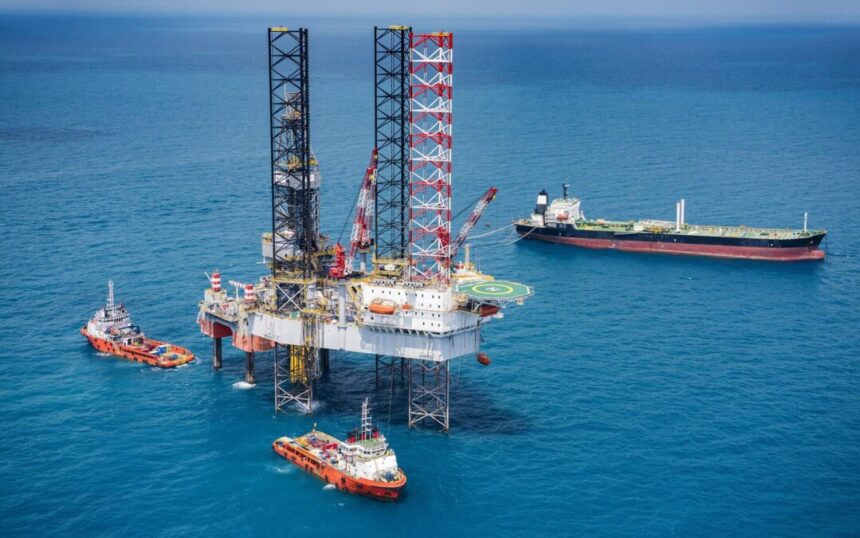The ocean is a place of great strength and deep solitude. For the dedicated men and women who work on offshore oil rigs, platforms, and vessels, it is a high-stakes environment where they can be very productive but also very dangerous. You are part of a proud group of maritime workers who keep the world running. But when the unthinkable happens—a terrible accident that breaks up the routine of a demanding job—being alone can become a scary problem.
An accident at sea is different from any other kind of workplace injury. It doesn’t happen near a hospital in the area. The rules for workers’ compensation that apply to office workers don’t apply to it. Instead, you are thrown into a complicated, old-fashioned, and often unforgiving world of maritime law, which is as deep and dangerous as the waters you work on.
As a legal writer who has spent years writing about what happens after these events, I can tell you for sure that the moment you get hurt offshore, a clock starts ticking. Your employer and their insurance company, both of which have a lot of money and teams of experienced lawyers, start a process to limit their financial responsibility. Their main goal is not to help you; it’s to protect their profits.
This article is not meant to scare you. It is a full guide that is meant to give you power. It is a lighthouse in the storm that shows you the important, non-negotiable reasons why you need a specialized offshore accident lawyer on your side. We will look at the complicated laws that apply to your case, the strategies used by big companies, and the step-by-step process a skilled maritime lawyer goes through to protect your future. This is the only guide you need for high-quality legal protection.
The Dangerous Legal Waters: Why Maritime Law is a Different Animal
The first and most important reason you need a specialized lawyer is that a personal injury lawyer who works on land can’t handle your case. Maritime Law, or Admiralty Law, is a very specific and unique area of federal law that deals with injuries that happen at sea. It has its own laws, its own examples, and its own words.
If you don’t have an expert, trying to figure out this system is like trying to sail a supertanker with a speedboat captain. Standard state law has nothing to do with the main legal principles that will define your claim.
The Jones Act: Your Most Powerful Weapon
The Merchant Marine Act of 1920, also called the “Jones Act,” is the most important law for many offshore workers that protects their rights. The Jones Act lets injured seamen sue their employers for negligence, which is different from traditional workers’ compensation, which is a no-fault system.
- What does “Seaman” mean?** The first step is to show that you are qualified. If you work on a “vessel in navigation” and do a lot of work on it (usually 30% or more of your time), you are probably considered a seaman. This could include people who work on jack-up rigs, semi-submersibles, drillships, and supply boats. To prove that you are a seaman, you will need the help of an experienced offshore accident lawyer.
- The Low Burden of Proof: The Jones Act’s most powerful feature is that it doesn’t require much proof. You don’t have to show that your employer’s carelessness was the main reason for your injury. You only have to show that their carelessness was any part of what caused your accident. This is a lot less work than a normal personal injury case.
- What is negligence? An expert offshore accident lawyer can find negligence in a lot of different ways:
- Not making the workplace safe.
- Not enough training or supervision.
- Not giving the right safety gear.
- Grease, oil, or other dangers on the deck.
- Making you work too many hours, which makes you tired.
- Hiring crew members who aren’t good at their jobs.
The Doctrine of Unseaworthiness: An Owner’s Unbreakable Duty
The doctrine of unseaworthiness is a part of general maritime law that is different from the Jones Act. According to this doctrine, a shipowner has a duty that cannot be delegated to anyone else to provide a seaworthy ship.
- What does “unseaworthiness” mean? ** This doesn’t just mean that the ship might sink. It means that the ship and its gear are not in good enough shape to do what they were meant to do. A boat can be “unseaworthy” if it has one broken piece of equipment, a missing safety guard on a winch, a poorly designed staircase, or even a crew member who is not trained well or is violent.
- No Negligence Needed: You don’t have to show that the vessel owner was careless to win an unseaworthiness claim, unlike a Jones Act claim. You just need to show that there was an unseaworthy condition and that it was a big part of what caused your injury. Your lawyer can use this tool very well.
Maintenance and Cure: You Have the Right to Immediate Benefits
This is one of the oldest and most important rights that a sailor has. “Maintenance” is a daily payment to help you pay for your living expenses (rent, utilities, food) while you can’t work. “Cure” means paying for your reasonable and necessary medical costs.
- An Absolute Right: You have the right to maintenance and cure no matter who caused your injury. Your employer has to pay even if you hurt yourself.
- The Truth of the Matter: Employers and their insurance companies often try to limit these payments, even though they are a right. They might pay you a low daily rate for maintenance (like $30 to $40 a day), which is not enough to live on, or they might cut off your benefits early by saying you have reached “Maximum Medical Improvement” (MMI) before your doctor agrees. An offshore accident lawyer will do everything they can to make sure you get a fair maintenance rate and that your medical bills are paid until you are completely ready to go back to work.
The Longshore and Harbor Workers’ Compensation Act (LHWCA)
What if you don’t work on a Jones Act ship? The LHWCA probably covers you if you work in a harbor, build ships, or work on a fixed offshore platform on the Outer Continental Shelf. This is a system for federal workers’ compensation that pays for medical care and lost wages. It is more generous than most state workers’ comp systems, but it is still a complicated process with deadlines and possible problems. You can be sure that your claim is filed correctly and that you get all the benefits you deserve with the help of an experienced offshore accident lawyer.
The Enemy in the Wings: Why Your Boss Isn’t Your Friend
It may be hard to accept, but you need to understand this. As soon as you tell your boss about your accident, their interests are no longer the same as yours. They now have a possible large financial responsibility, and their insurance company will be in charge of managing and lowering that responsibility.
What the Company Man and the Insurance Adjuster Do
A company representative or an insurance adjuster will probably get in touch with you very soon. They might look friendly, worried, and helpful. This is a plan. Their job is to find information that can be used to lower the value of your claim or deny it.
- The Recorded Statement: They will probably ask you to give a recorded statement about what happened. You should never give a recorded statement without your lawyer present. They are trained to ask questions that make you downplay your injuries, admit partial fault, or make your story inconsistent. You can twist the words “I’m feeling a bit better today” to mean that you aren’t hurt very badly.
- The Quick, Lowball Settlement Offer: If your injury is bad enough, they might offer you a quick settlement. You might think this is a lot of money at the time, especially if you’re out of work and your bills are piling up. But these first offers are almost always too low and don’t take into account your future medical needs, lost wages, or pain and suffering. They want you to take the quick cash before you can talk to an offshore accident lawyer and find out how much your claim is really worth.
- Controlling Your Medical Care: They might try to send you to doctors that the company has approved. These doctors may be good at what they do, but they work for the company. They might always try to downplay the seriousness of your injuries or say you’re fit for duty too soon to save the company money. Your lawyer will make sure that you see independent, trustworthy medical experts.
The Anatomy of a Winning Case: What a Top Offshore Accident Lawyer Can Do for You
When you hire an offshore accident lawyer, you’re not just getting someone to represent you; you’re also getting someone to start a full investigation and build a strong case for you. This is what goes on behind the scenes.
Step 1: Keep the Evidence Safe Right Away
Evidence in an offshore case can go missing very quickly. Ships are fixed, crews are switched, and logs are “lost.” A top lawyer will act quickly to protect important evidence.
- Letters of Spoliation: Your lawyer will send the company legal notices telling them to keep all evidence related to your accident, such as the vessel’s logs, maintenance records, safety meeting minutes, personnel files, and any broken equipment.
- Vessel Inspection: Your lawyer will hire maritime experts to carefully look over the vessel and the accident scene to record any unsafe conditions before they can be changed.
- Witness Interviews: Crew members are often afraid to speak out against their boss because they are afraid of getting fired. A lawyer with experience knows how to find and talk to witnesses in a way that keeps them safe and gets to the truth.
Step 2: Finding out the full value of your claim
The company’s first settlement offer will be based on a small amount of your damages. A good offshore accident lawyer will make a full damages model that takes into account all the ways you lost money. This includes:
- Medical Costs in the Past and Future: This includes a lot more than just the first trip to the ER. It covers surgeries, physical therapy, rehab, prescription drugs, and any other long-term care you might need.
- Past and Future Lost Wages: If you can’t work in the high-paying offshore industry anymore, the loss of your future earning potential could be the biggest part of your claim. Your lawyer will hire vocational experts and economists to figure out how this loss will affect your work life.
- Pain and Suffering: This pays you for the physical pain, mental anguish, and emotional distress you have been through.
- Disfigurement and Impairment: Money for scars, losing a limb, or any other permanent physical problems.
- Loss of Enjoyment of Life: You have the right to compensation if you can no longer do the things you used to love.
Step 3: Getting through the complicated legal process and negotiating
Your lawyer talks to the company and their insurance company for you. They will file the right legal claims, respond to motions, and take care of all parts of the discovery process.
The most important thing is that they will be able to negotiate from a strong position. The insurance company knows they are facing a credible threat of a large jury verdict at trial because they have built a strong case with strong evidence and expert testimony. This is what makes them make a fair and big settlement offer at the negotiating table. Most cases settle outside of court, but you need a lawyer who has a lot of experience in court and is ready to take your case to a jury if the company won’t be fair.
What to Do Right Away After an Accident at Sea
What you do in the first few hours and days after an accident can have a big effect on your health and your possible legal claim.
- Tell Your Boss About Your Injury Right Away: No matter how small it seems, tell your boss about your injury right away. Make sure that an official report of the accident is filled out. If you wait, the company might later say that your injury happened while you were working.
- Get Medical Help: Your health comes first. Get medical help from the rig medic or ask for an immediate evacuation. Tell your doctors everything about your symptoms in complete honesty.
- Write Down Everything: If you can, take pictures or videos of the scene of the accident, the equipment that was involved, and your injuries. Get the names and phone numbers of anyone who saw what happened.
- Keep Your Own Evidence: Put your work boots, coveralls, and any other safety gear you were wearing in a safe place. Don’t wash them. They might have important proof.
- Do What Your Doctor Says: Follow the treatment plan your doctor gives you exactly. The insurance company will say that you are not really hurt or that you are making your condition worse if you miss appointments or don’t follow medical advice.
- Don’t Sign Anything: Don’t sign anything from the company or their insurance company until an offshore accident lawyer has looked over it. You might be giving up your legal rights.
- Don’t Use Social Media: Insurance companies keep an eye on the social media accounts of people who file claims. Someone could use a picture of you at a family barbecue to say that you aren’t as hurt as you say you are. While your case is still going on, it’s best to either turn off your accounts or not post at all.
- Get in touch with a specialized offshore accident lawyer as soon as you can: the sooner you have an expert on your side, the safer you will be.
You Decide: Your Future is at Stake
You need to be brave, skilled, and willing to take risks to work offshore. But if your employer’s carelessness leads to an injury that changes your life, you shouldn’t have to pay for it all by yourself.
The law that protects your rights is strong, but it’s also hard to understand and dangerous for people who don’t know what they’re doing. The businesses you are up against are smart, have a lot of money, and are protected by the law. It’s not fair to fight them alone.
The best thing you can do to make things fair is to hire a top-notch offshore accident lawyer. It is an investment in your health, your family’s future, and your own financial security. It means that you won’t let circumstances control your recovery; you will be in charge of it.
Don’t let your boss’s carelessness shape the rest of your life. Pick experience. Pick someone who knows what they’re doing. Pick a lawyer who will fight for the best legal protection you can get. Your future self will be grateful for it.
https://umubanotv.com/
Source:
https://www.law.cornell.edu/uscode/text/46/30104








